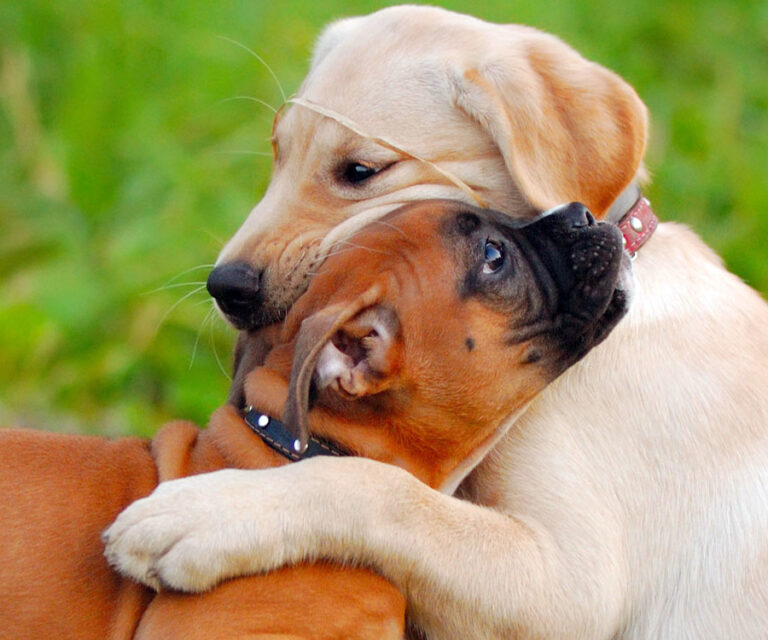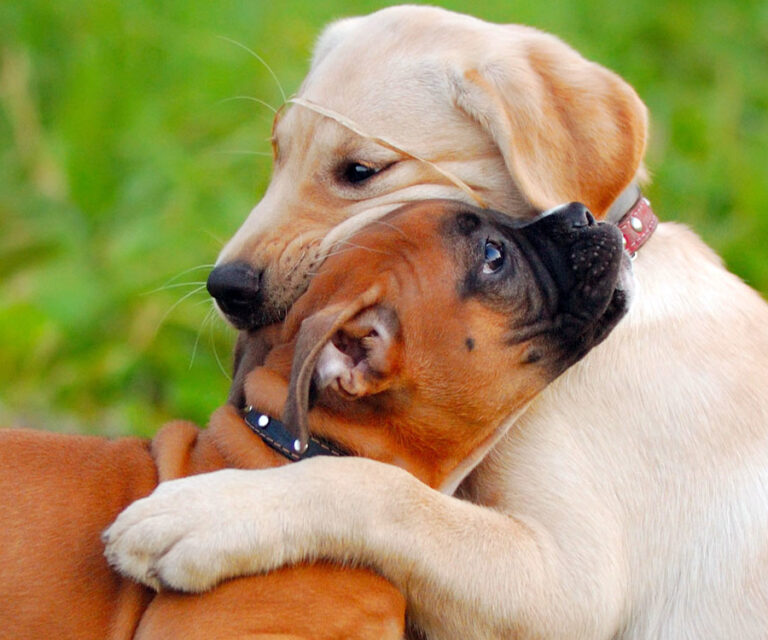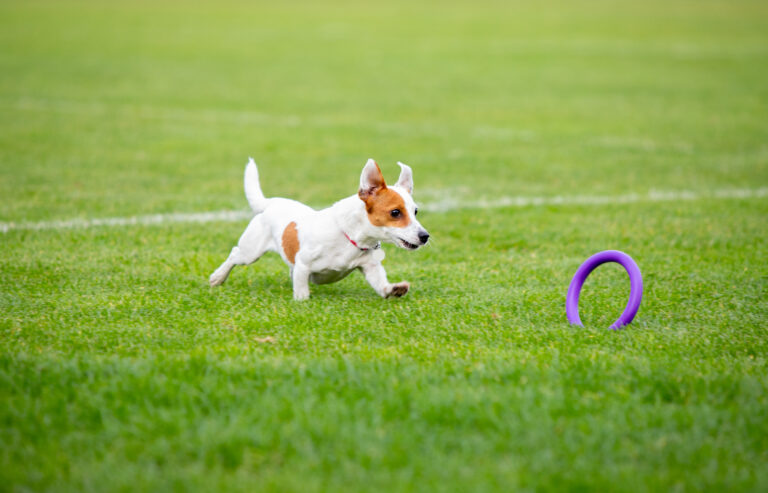A well-socialized dog is not born, but made through consistent and positive interactions. Surprising to some, studies have shown that early socialization in puppies significantly reduces behavioral problems later in life. Indeed, one might say, a socialization session a day keeps the bad behavior away.
Historically, the incorporation of socialization practices in canine training can be traced back to the mid-20th century. According to research, dogs who were exposed to various environments and beings during their developmental stages exhibited 50% fewer signs of anxiety and aggression. This compelling evidence underscores the transformative power of socialization in fostering a harmonious bond between dogs and their human companions.

The Power of Socialization: Transforming Dog Behavior for a Harmonious Bond
Socialization plays a crucial role in shaping a dog’s behavior. Early exposure to different environments, people, and other animals helps dogs to be well-adjusted and confident. Without proper socialization, dogs can become anxious or aggressive. This is why many trainers emphasize starting socialization at a young age. A small effort in the beginning leads to a lifetime of positive and harmonious behavior.
Scientific studies back the importance of socialization. Dogs that are properly socialized show fewer signs of fear and aggression. They are also more adaptable to new situations. For instance, a well-socialized dog is comfortable in crowded places such as parks. This adaptability enhances their quality of life and strengthens their bond with their owners.
Effective socialization involves a variety of activities. Some helpful methods include taking your dog on daily walks in different locations. Enrolling in a puppy training class is another great option. Providing regular playdates with other dogs, and exposing your dog to various sounds and experiences are also beneficial. These activities make your dog more social and less likely to develop behavioral problems.
Real-life success stories highlight the power of socialization. Dogs that were once anxious or aggressive transformed into calm and friendly pets. Owners report that their dogs are happier and easier to manage. A happy and well-behaved dog often becomes an integral part of the family. This proves that investing time in socializing your dog is truly worth it.
Exploring the Root of Behavioral Problems in Dogs
Understanding the root causes of behavioral problems in dogs is essential for effective training. Many issues stem from a lack of early socialization. When dogs are not exposed to different environments and experiences, they can become fearful. Fear often leads to aggression or anxiety. Addressing these roots is the first step in correcting their behavior.
Neglect and past trauma are also significant factors. Dogs that have experienced abuse or abandonment may exhibit trust issues. They might be more likely to bite or act out aggressively. Health issues can also influence behavior. A dog in pain may become irritable or aggressive.
Genetics play a role too. Certain breeds are more prone to specific behaviors. For example, herding dogs might nip at heels naturally. Recognizing these inherent traits helps in tailoring the training methods.
Here are some common behavioral problems and their possible roots:
- Excessive barking: Often due to boredom or anxiety.
- Chewing: Can be a result of teething or stress.
- Separation anxiety: Usually triggered by being left alone for long periods.
- Aggression: May stem from fear, lack of socialization, or past trauma.

Impact of Socialization on Dog Behavior
Socialization has a profound positive impact on dog behavior. Dogs that are well-socialized from a young age are generally more confident and less fearful. This confidence translates into better behavior in various settings, from the home to the park. Additionally, socialized dogs are less likely to exhibit aggressive tendencies. They learn to interact with people and other animals in a calm manner.
The benefits extend to making everyday activities easier. For instance, a socialized dog is more comfortable during vet visits. They handle car rides without anxiety and enjoy outdoor adventures. These experiences improve their quality of life. Owners also find it more enjoyable to spend time with a well-behaved and happy dog.
Additionally, socialization helps in preventing behavioral issues. Early exposure to different situations teaches dogs how to react appropriately. This means fewer instances of destructive behavior, such as chewing or excessive barking. Socialized dogs quickly become well-adjusted members of their families. They adapt seamlessly to new environments and routines.
The overall impact of socialization on dog behavior can be summarized as follows:
- Increased confidence and reduced fear
- Better interaction with people and animals
- Easier management during vet visits and car rides
- Prevention of common behavioral issues
Methods for Effective Canine Socialization
Effective socialization starts with exposing your dog to various environments. Take your dog to different places like parks, busy streets, and even pet-friendly stores. This helps them get used to different sights, sounds, and smells. The more diverse the experiences, the better. Start these outings at a young age for maximum benefit.
Introducing your dog to different people is also crucial. Have friends and family come over to interact with your dog. Make sure these interactions are positive and rewarding. This will help your dog become comfortable around strangers. Exposure to different age groups and appearances is beneficial too.
Another effective method is puppy training classes. These classes offer structured socialization in a controlled environment. Puppies learn basic commands and manners while interacting with other dogs. This helps them develop social skills in a safe setting. It’s also a great opportunity for pet owners to learn training techniques.
Here are some key activities to include in your socialization routine:
- Daily walks in new locations
- Playdates with other dogs
- Visits to pet-friendly stores
- Exposure to different sounds, like traffic and household noises
- Participation in puppy training classes
Regular playdates are an excellent way to encourage social behavior. Arrange meetups with other dogs so your pet can practice interacting. Pay attention to body language to ensure all dogs are comfortable. Keeping these sessions short and positive makes a big difference. Consistency is key for successful socialization.
Real-Life Success Stories: Behavioral Transformation through Socialization
Many dog owners have witnessed dramatic changes in their pets thanks to socialization. One heartwarming story is about a dog named Max, who was very nervous around people. Through regular visits to dog parks and puppy classes, Max became much friendlier. His owner also introduced him to different family members gradually. Within months, Max was a completely different dog, full of confidence.
Another example is Bella, a rescue dog with severe anxiety issues. Her new family spent time exposing her to various environments and sounds. They also scheduled regular playdates with neighborhood dogs. Over time, Bella’s anxiety levels decreased significantly. She now enjoys her daily walks and playing with other dogs.
Chester, a Golden Retriever, had a tendency to bark excessively. His owner took him to training classes and provided socialization with other dogs. The structured exposure helped Chester understand when barking was appropriate. This reduced his excessive barking. Chester is now more relaxed and easier to handle.
Here are some transformation highlights:
- Max: Nervous to confident around people
- Bella: Overcame severe anxiety
- Chester: Reduced excessive barking
- Luna: Improved behavior in public places
- Rocky: Built trust with new owners
One more inspiring story involves Luna. She initially struggled with distractions in public areas. Her owners took her to busy markets and cafes to get her used to these environments. With time, Luna became calm and focused even in noisy settings. This made outings enjoyable for both Luna and her owners.
Frequently Asked Questions
Socializing your dog is key to a well-behaved, confident pet. Here are some common questions and answers about the importance of socialization in transforming dog behavior.
1. What is the best age to start socializing a puppy?
The ideal time to start socializing a puppy is between three and fourteen weeks of age. During this critical period, puppies are more receptive to new experiences and less likely to develop fear-based behaviors.
Early exposure to various environments, people, and other animals can set the stage for a well-adjusted dog. Consistent positive interactions during this time help them grow into confident adult dogs that handle new situations well.
2. Can older dogs still benefit from socialization?
Yes, older dogs can still benefit from socialization, although it may take more time and patience. Socializing an adult dog involves gradually exposing them to new experiences while maintaining a calm and rewarding environment.
The goal is to create positive associations with new stimuli, helping reduce fear or anxiety. While late socialization might be more challenging, it can significantly improve an older dog’s behavior and quality of life.
3. How do I know if my dog needs more socialization?
If your dog shows signs of fear, aggression, or anxiety around new people or environments, they may need more socialization. Other indicators include excessive barking or nervous body language like cowering or shaking.
Lack of confidence in unfamiliar settings often signifies insufficient exposure during critical developmental periods. Consulting with a professional trainer can provide guidance on how best to support your dog’s specific needs through targeted socialization activities.
4. Are there risks associated with early socialization?
The primary risk involves disease exposure if not handled correctly before vaccinations are complete. Therefore, controlled environments like puppy classes with healthy pups are recommended.
Avoid busy public spaces until vaccinations are done but focus on safe areas for early interactions. The benefits far outweigh the risks when done carefully—leading to a balanced adult dog.
5. What activities help in effective canine socialization?
Effective activities include daily walks in varied locations, playdates with other dogs, and visits to pet-friendly places like stores or cafes. Enrolling in structured training classes also offers valuable opportunities for interaction under professional supervision.
Diverse exposures help dogs become comfortable with different scenarios making them well-rounded pets. Always ensure each new experience is positive to build confidence and prevent negative behaviors from developing.
Read this article to help decide if group or private classes are the best starting point for your dog: Best type of classes for your dog
Final Thoughts on Socializing Your Dog for Better Behavior
Effective socialization is the cornerstone of transforming dog behavior, ensuring they lead happy and balanced lives. Introducing your dog to various environments, people, and other animals builds their confidence and reduces fear and aggression. Remember, consistency is key to achieving long-lasting results.
By investing time in socializing your dog, you are fostering a harmonious relationship that benefits both pet and owner. With proper socialization, dogs become well-adjusted members of the family, enhancing their quality of life. The effort you put in today will pay off with a well-behaved, happy companion.
Contact Off Leash K9 Training Spokane, Washington here to learn more about the Training Programs they offer to help you and your dog.
Their website: http://www.dogtrainersspokanewa.com
Phone: 509-481-9223
To Find an Off Leash K9 Training location near you look here.



